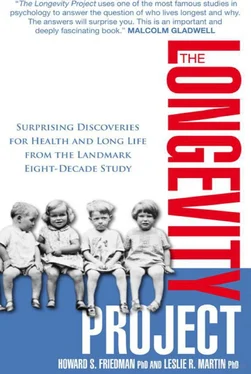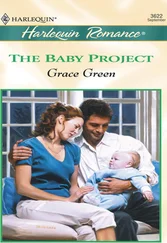Over the course of a career, the average worker spends tens of thousands of hours dedicated to his or her occupation. Psychologist John Holland created one of the most well-tested and widely used systems for simultaneously categorizing individuals according to both personality type and occupational environment. 73 73 To read more about Dr. Holland’s system of classification, see J. L. Holland, The Psychology of Vocational Choice: A Theory of Personality Types and Model Environments (Waltham, MA: Blaisdell, 1966).
Holland believed that the choice of a vocation is often an expression of personality and so developed a framework that was ideal for seeing what happens when people work (or do not work) in fields that fit them.
Holland defined six types that refer both to individuals and to occupations. Artistic people and artistic occupations include actors, musicians, designers, and artists. Realistic occupations are those where people “do” things—engineers, firefighters, pilots, machinists, veterinarians, and so on. Investigative occupations involve a lot of thinking—economists, professors, and chemists. Social occupations include helpers such as clergy, nurses, teachers, and counselors. Enterprising careers generally involve persuasion such as insurance, politics, and general sales. Conventional occupations emphasize organizational skills, such as administration, financial analysis, and auditing. There is some overlap among these categories but they do a good job of capturing the general emphases of occupational skills, tasks, and interests.
Applying Holland’s categories to the Terman archives, our team (initially motivated by then-graduate student Kathleen Clark) gathered and coded information from 1940 about each person’s likes, dislikes, occupational interest scores, and preferences for various pursuits. We analyzed about four hundred activities, looking for whether the Terman men worked in occupations that matched their own personality characteristics or whether they had, for various reasons, not worked in their compatible fields.
We predicted that those individuals who spent their lives working in occupations that were a good fit for their interests would face less stress and so would be healthier and live longer. We expected that individuals who loved and valued artistic activities would be healthiest if they worked in an artistic field and least healthy if they became, say, financial analysts.
In fact, however, being well suited to one’s job did not always predict a longer life. A match could actually be a health risk factor. Among men in the Enterprising group, those with high congruence between personality and occupation died sooner—assertive, persuasive men who worked in occupations such as sales management were at greater risk than assertive, persuasive men working in other types of occupations. The personality predisposition and the career reinforced each other, bringing out the stresses and unhealthy habits common to each.
Men who were less enterprising (in terms of their personalities) but found themselves holding enterprising jobs were also at relatively high mortality risk. The stressful enterprising jobs brought out latent unhealthy tendencies and they faced more stress and poorer health habits. But the less enterprising still weren’t as badly off as the “always on” personalities working in jobs that required them to be go-getters.
The one case in which a good career-to-personality match was helpful was the Social category. Men with social personality types (cooperative and having good people skills) who were working in social environments (like counseling) did live longer.
Overall, our findings revealed that when choosing a career, finding the “perfect match” doesn’t necessarily put one on a path toward long life. This doesn’t mean that choosing one’s career path is unimportant. All of us have things that we detest doing, and naturally it would not be smart to intentionally choose a job that requires these activities day after day, year after year. But living out one’s dreams was not what led to health and longevity. It was a productive perseverance, a sense of mastery and accomplishment buoyed by one’s career successes, that did that. We hope this is a comforting finding for students and young people on the brink of life-shaping career choices.
Aging, Productivity, and Health
But what about older participants? What were the impacts of productivity on long life for those who had already completed the most rigorous part of their career? We looked to the 720 Terman participants—both men and women—who were still alive in the 1980s, at which time most were over seventy years old. We studied whether each person was still productive, motivated, and accomplishing things. Some of the Terman participants continued to work for pay, either part-time or full-time. Others were pursuing new educational opportunities or setting new goals and achieving new awards. Some were motivated to work for social change or make a new contribution to society. We compared those who were highly productive in old age to those who were taking it easy and were not so concerned with racking up accomplishments.
The findings were dramatic. Looking over the next two decades, the continually productive men and women lived much longer than their more laid-back comrades. This productive orientation mattered more than their social relationships or their sense of happiness and well-being. 74 74 For a study of personality, productivity, and longevity see H. S. Friedman, M. L. Kern, and C. A. Reynolds, “Personality and Health, Subjective Well-Being, and Longevity,” Journal of Personality 78 (2010): 179-215.
Again, it was their prudence, dependability, and perseverance that made the difference. The highly productive elderly Terman subjects were those who, earlier in life, had been assessed as the most conscientious. They were also less likely to be heavy drinkers or carousers. It was not the happiest or the most relaxed older participants who lived the longest. It was those who were most engaged in pursuing their goals.
Skeptics might wonder whether hard workers are really enjoying life. Are they missing out on enjoying the good things? Just as we previously found that conscientious, dependable people are not leading boring and stale lives, we now found that productive, hardworking people (even in old age) are not stressed and miserable, but tend to be happier, healthier, and more socially connected than their less productive peers.
Other researchers have found the same thing (though not via life-span studies): People who have meaningful and important jobs and who are especially productive are much happier than those who are unpressured, lackadaisical slackers. 75 75 The study of meaningful jobs and happiness is S. Lyubomirsky, L. A. King, and E. Diener, “The Benefits of Frequent Positive Affect: Does Happiness Lead to Success?” Psychological Bulletin 131 (2005): 803-55.
People on the right pathways to long life work harder in their jobs. And they not only stay healthier but they are happier to boot. People like Norris Bradbury, Edward Dmytryk, and Shelley Smith Mydans are thrivers and survivors.
In the classic film The Wizard of Oz , the Scarecrow complains resentfully that he has only straw in his head but no brains. Yet as he and the other characters journey down the Yellow Brick Road to seek help from the Wizard, the Scarecrow repeatedly behaves in a clever and wise manner, with many excellent ideas.
When the characters finally reach the Land of Oz, the Wizard says to the Scarecrow, “Anybody can have a brain.” The Wizard even helpfully points out that universities are full of professors who think deep thoughts “with no more brains than you have.” But the Wizard then admits to the Scarecrow that wise, successful, and well-educated individuals “have one thing you haven’t got—a diploma!” So he presents a diploma and the expectations that go along with it. With the proper credentials in hand, a bright individual not only has the capacity to succeed but has the motivation and confidence to thrive.
Читать дальше











